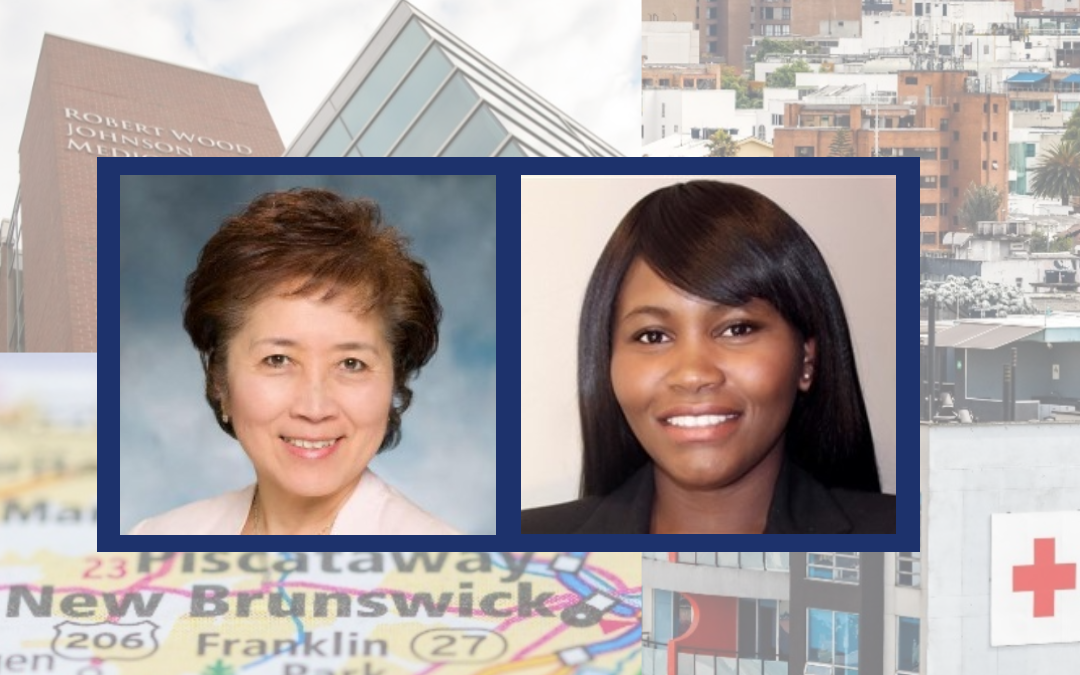Collaborating for Global Health: In this content series, we highlight members of our Rutgers Global Health Institute Collaborators Network.
The science and practice of medicine are of paramount importance in global health, a field that emphasizes improving health and achieving equity in health for all people.
At Rutgers, Robert Wood Johnson Medical School is dedicated to transforming health care in ways that extend from local to national to global, and its Office of Global Health contributes to this mission in various ways.
Office Overview
The Office of Global Health at Robert Wood Johnson Medical School is a hub for many types of global health activities, which involve people throughout the school – such as faculty members; medical students, residents, and trainees; research fellows; clinicians; and visiting scholars – and places around the world, including the school’s local communities in New Jersey and international partnership sites.
Major goals of the school’s global health programs include enhancing medical students’ awareness of global issues related to health; encouraging medical students to immerse themselves in the cultures and health systems of other countries; developing and coordinating international rotation opportunities for medical students; providing information to students about clinical and community programs in diverse ethnic communities in New Jersey; and stimulating and supporting international activities of the school’s faculty.
Who’s Who
“It is energizing to be part of a medical school community that embraces global health in its many forms, which contributes to the recruitment of quality medical students and residents,” says associate dean for global health Karen WeiRu Lin, who also is a professor of family medicine and community health and a core faculty member at Rutgers Global Health Institute. In addition to her role overseeing many of the medical school’s global health affairs, Lin is active with local medical efforts that aim to increase access to health care and reduce health disparities among the city of New Brunswick’s most vulnerable populations. For example, she is the faculty advisor for the medical school’s student-run HIPHOP Promise Clinic (HIPHOP stands for Homeless and Indigent Population Health Outreach Project) and its associated asylum clinic, which provides forensic medical and psychological evaluations for individuals seeking asylum from other countries.
Angela Gitau, the office’s program manager, is a hands-on facilitator for a variety of global health-related academic, research, and student engagement initiatives at the medical school. She advises medical students who are interested in global health; coordinates interdisciplinary guest lectures for the graduate course titled “A Primer on Global Health;” and helps to arrange partnerships with institutions around the world. “I really enjoy helping our medical students identify and pursue their professional interests,” Gitau says. “Throughout the COVID-19 pandemic, we’ve been working through a lot of changing dynamics, such as restrictions on international travel. This has helped us all to look at the realm of global health in new ways, realizing that challenges can lead to new opportunities.”
Global Health Highlights
The variety of opportunities for engaging in global health is one of the medical school’s hallmarks. Journal clubs and guest lectures are ongoing, and community health programs are always active as they respond to local health needs.
An annual highlight is the school’s Distinction Symposium, which took place this year on March 16 and included presentations by five medical students who are enrolled in the school’s rigorous and prestigious Distinction in Global Health program. The Department of Surgery’s global surgery initiatives also remain active, especially through ongoing participation in the Latin American Indicator Research Collaboratory. In addition, acute care surgeon Joseph Hanna, assistant professor and a core faculty member of Rutgers Global Health Institute, presented “An Ecologic Assessment of Access and Service Delivery of Colombian Neurosurgical Services” at the 34th annual meeting of the PanAmerican Trauma Society in Cartagena, Colombia, which third-year medical student Hugh Bartlett also attended.
The Office of Global Health’s collaborative spirit means there’s always something new in the works. On the horizon are partnerships with Kobe University in Japan and Universidade Federal de Ciências da Saúde (Federal University of Health Sciences) in Porto Alegre, Brazil; summer rotations for medical students in Austria, Colombia, Costa Rica, Japan, Romania, Spain, and Taiwan; and a speaker series about capacity building that’s being organized by students in the Global Health Interest Group.
Collaborating for Global Health
Robert Wood Johnson Medical School is active in the Rutgers Global Health Institute Collaborators Network, which comprises global health offices and global health-related centers throughout the university.

